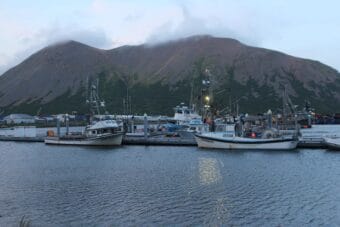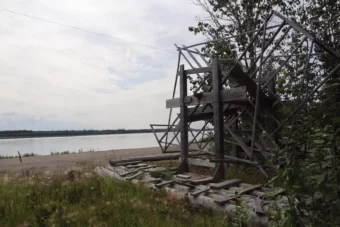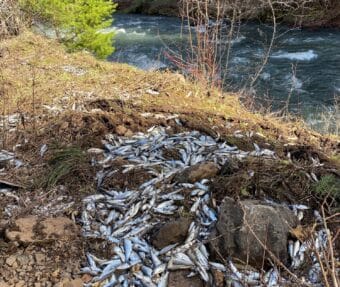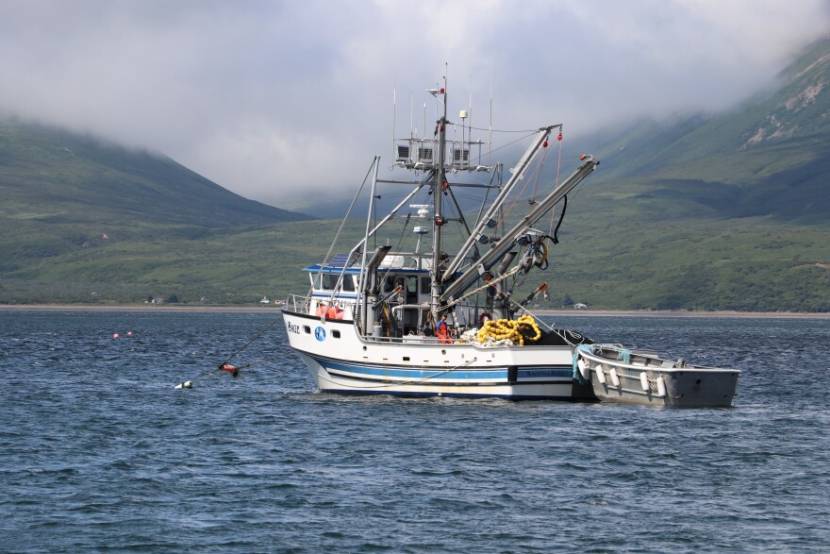
Aloys Kopun sat in the small harbormaster’s office in Chignik Bay last July as a few boats gently bobbed in the harbor’s turquoise water.
“When we were fishing like we normally fished here, the whole harbor was always plump full,” he said. “As you can see, now, we had hardly nobody in here. And everybody’s gone tendering or went to other areas to fish, or some of them went broke.”
Kopun fished in Chignik, on the Alaska Peninsula, for decades before becoming the summer harbormaster.
He said the harbor used to be so full that it had a waiting list for boats to dock there. But last summer, it was almost empty. Significantly fewer boats have returned since the Chignik sockeye run failed in 2018. Fishermen who depend on the salmon closed out that season without making a paycheck.
Three and a half years later, Chignik fishermen are finally expecting federal relief funds to start coming in, making up for some of their lost income. But that assistance may be too late to keep those fishermen coming back to Chignik, or to help make the local economies whole again.
“It is a kind of a small BandAid on a bigger wound that was opened four years ago,” said George Anderson, the president of the Chignik Intertribal Coalition who has fished commercially his entire life. “For a lot of people, they’ve moved on to other fisheries, had to invest, move into tendering — you know, does a check four years later really recuperate your losses? For everybody, it’s going to be different.”
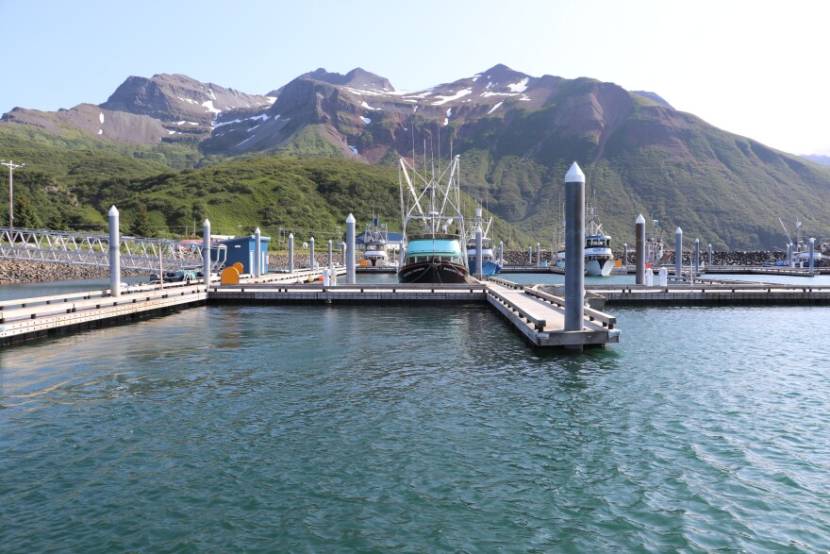
Disaster funds that are years in the making
The lengthy disaster relief process has frustrated fishermen and communities.
The Chignik Intertribal Coalition sent a letter to U.S. Sen. Dan Sullivan last fall requesting an expedited process for administering federal funds.
Months later, the Pacific States Marine Fisheries Commission is now getting ready to distribute some of the $10.3 million in disaster funds to Chignik fishermen in the coming weeks. The rest will go to processors, communities and research.
Disaster funds are meant to help fishery participants harmed by the 2018 sockeye crash, improve information used for in-season assessments and to forecast future runs, according to the state. They’ll also go toward developing management approaches that mitigate the impacts of future fishery disasters.
The average payment to a permit holder will be about $73,000, according to the fishery advisor for the Lake and Peninsula Borough. Sixty-four permit holders applied. Those who caught fish outside of Chignik can receive $40,000 each.
Crew members have until March 8 to apply for 2018 funds through the Pacific States Marine Fisheries Commission. The deadline for permit holders to apply was in early January. All permit holders who intended to fish that season were eligible to apply for funds.
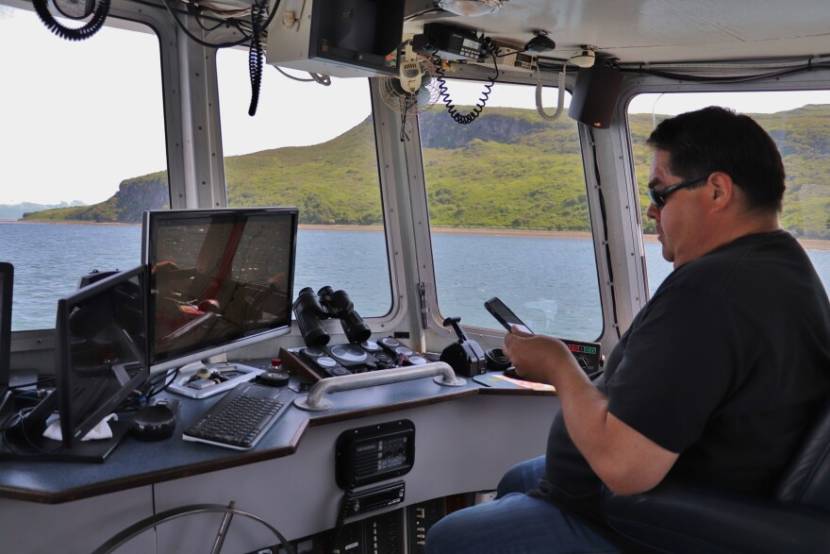
Without fishing ‘things just started going away’
Fishing in Chignik has been extremely tough since the 2018 disaster.
The price a fishing boat gets for its catch has been down across all salmon species. Last season, 31 fishermen participated in the fishery, and the value per permit was about $80,000, according to the Alaska Department of Fish and Game — both of which are around half of the 10-year average.
Last month, U.S. Secretary of Commerce Gina Raimondo announced 14 disaster declarations for Alaska fisheries, including one for the Chignik fishery for 2020. The Lake and Peninsula Borough is also asking the state to declare a disaster for the Chignik fishery for 2021.
The four years of low returns have made the fishery especially vulnerable. One of just two processors that buy Chignik fish is pulling out of the fishery. In early February, OBI Seafoods informed fishermen that it would not tender in Chignik this summer.
In a statement, CEO Mark Palmer said the decision was based on the low returns in recent years.
“This is a very difficult decision, but as our fleet moves to other areas to fish, [we] need to reallocate tenders to ensure we can serve those fishermen.”
That means Trident Seafoods will be the only processor for the fishery, and those who fished for OBI will have to find another market.
Anderson said that’s one more casualty of the collapsed run.
“Fish is everything for that region,” he said. “And without it, things just started going away.”
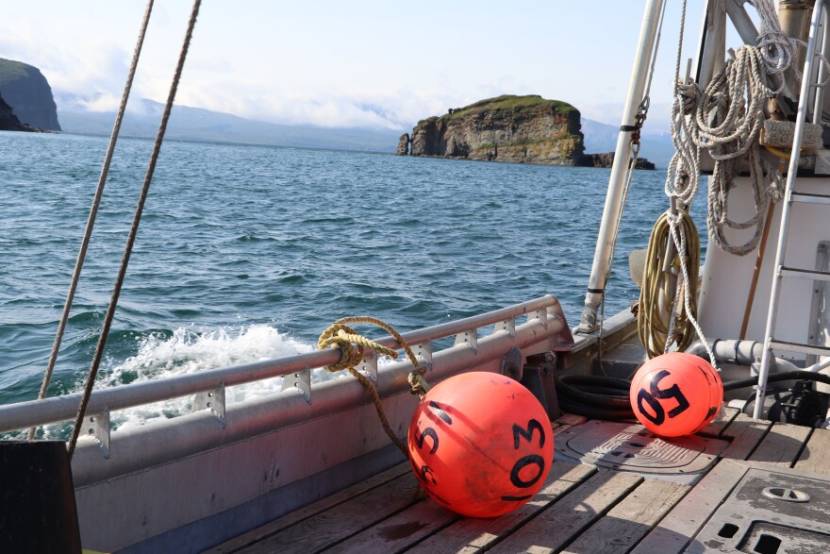
Fewer services in the community
Gene Carlson, a fisherman from Chignik Bay, said certain parts of the community have been slowly shrinking for years. About 90 people live there now. And there’s just one store. It’s owned by Trident and operated seasonally.
“They’re only open from May 15 till August, I think,” Carlson said as he stopped his car in front of a large warehouse and walked up to the door one afternoon in mid-July. “Oh, we’re too late! They close at 4:00. Sorry!”
In the winter, there is no store, but the community hall orders groceries. People also have groceries flown in. Once a month, a barge delivers them as well.
Across town and up a steep hill, the July sun streamed through the large windows of Chignik Bay’s city office last summer. The only person there was Mayor Robert Carpenter, sitting at a desk. Carpenter came to Chignik in 1992 as a processor with Aleutian Dragon Fisheries and has witnessed the area’s fishing industry decline over the past four years.
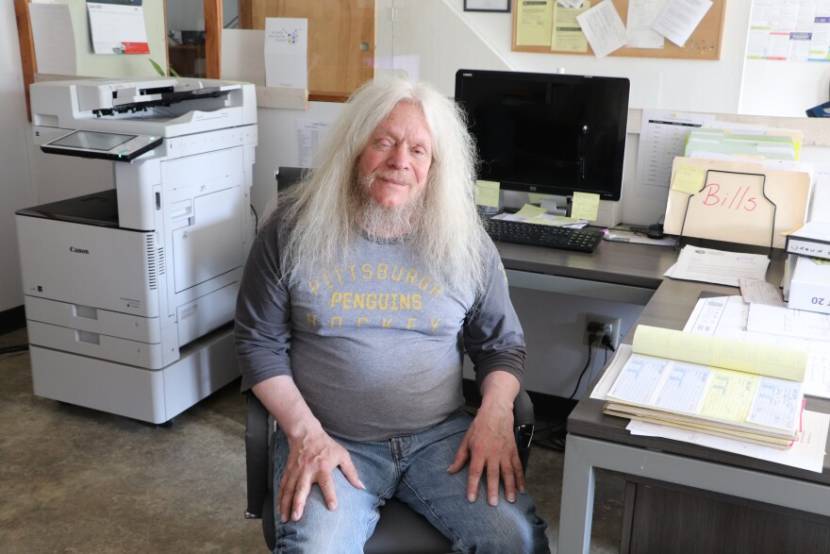
Now, he said, the city is still struggling to pay its bills.
“This is not good, and we’re looking for answers of how we survive, because the town itself, we basically survive off fish revenue,” he said. “That’s $300,000–$400,000 a year.”
Revenue from the city’s fish tax has shrunk drastically, said Carpenter, and the Lake and Peninsula Borough has lost tax revenue from the fishery, too.
The population used to balloon in the summer to hundreds more people, as cannery workers and fishermen came to tap the sockeye run. But the past few years have been especially tough.
The school has just enough students to stay open, for now. There are six K-12 students, one preschooler and one teacher. The principal lives in Anchorage and also serves other schools in the borough.
“We can’t keep people employed. We’ve got reduced hours on just about everything. For everybody. I myself only claim like three hours a day working here in the office,” said Carpenter. “Mayor position’s unpaid so it’s just — like I said, I get a couple hours but I can’t survive off that. And the people that just fish — they can’t survive on not fishing.”
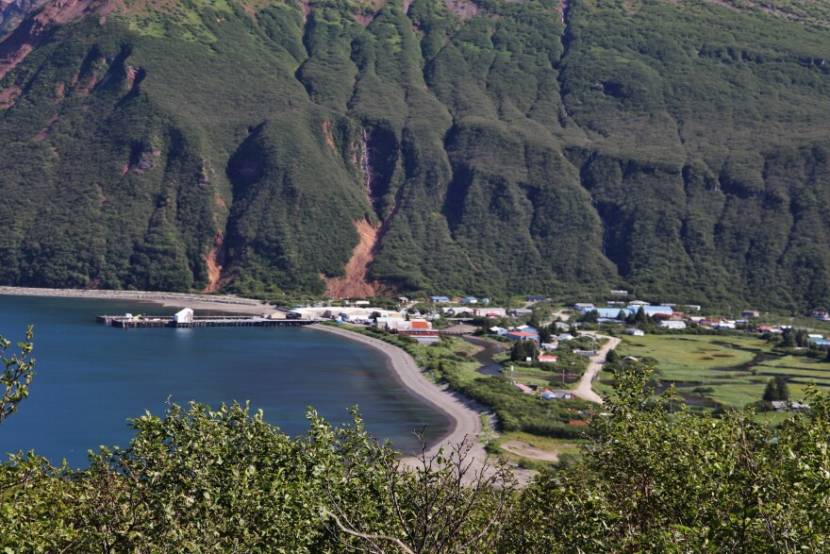
Low runs leave gaps in food security
The lower runs have also changed subsistence fishing in Chignik’s communities.
Anderson, with the Intertribal Coalition, said it has created gaps in food security.
Now, the coalition is working with the Ivanof Bay Tribe to interview people in each community through a tribal resiliency grant from the Bureau of Indian Affairs.
“Finding out their needs, and their priorities,” Anderson said. “And see if there’s ways to diversify, maybe get into mariculture, or tap into the blue economy somehow. We have a lot of talented people, and we have a lot of gear in the area.”
Around 1.2 million sockeye are expected to return this summer — about half of the 20-year average. Anderson isn’t confident the fishery will open. He said as long as the runs are low, it is important for the communities to find a way for people to earn a living by investing in infrastructure and diversification.
“Bottom line is: People generally want to earn their own keep,” he said. “They don’t want to keep having fisheries disasters, and wait for it to show up in the government.”
Disaster funds will help in the short term, Anderson said, but the Chignik communities may have to look beyond the fishery to find a way forward.

